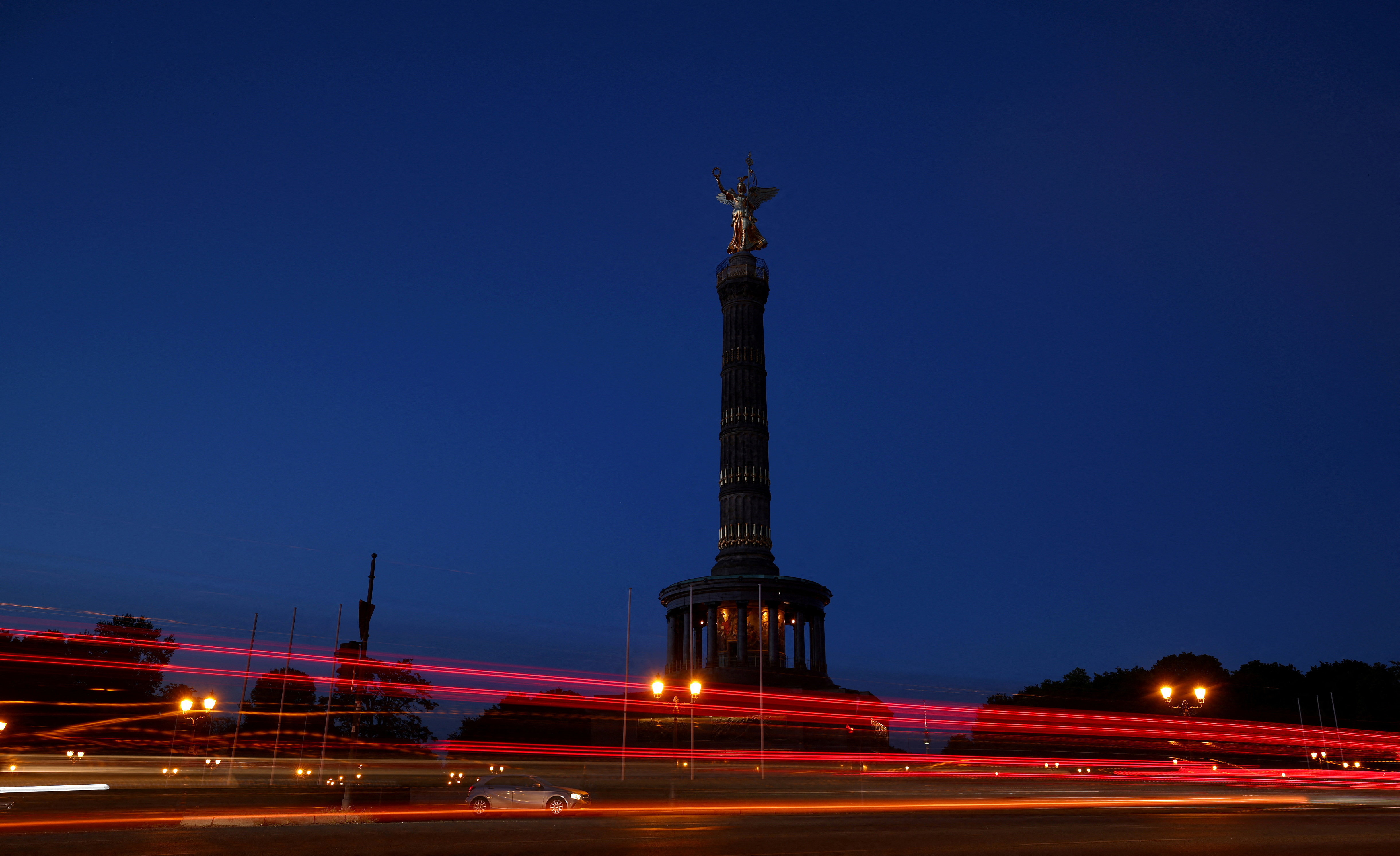Germany is bleeding cash to keep the lights on. Nearly half a trillion dollars, and counting, since the conflict in Ukraine pushed it into an energy crisis nine months ago.
That is the increasing level of the bailouts and schemes the Berlin government has launched to shield the country’s energy system. It took the strategy since prices surged and it stopped having access to gas from main supplier Russia, according to Reuters calculations.

And it may not be sufficient
“How severe this crisis will be and how long it will last greatly depends on how the energy crisis will develop,” said Michael Groemling at the German Economic Institute (IW).
“The national economy as a whole is facing a huge loss of wealth.”
The money earmarked stands at up to 440 billion euros ($465 billion), based on the calculations, which gives the first combined tally of all of Germany’s drives aimed at avoiding power shortages and obtaining new sources of energy.
That amounts to around 1.5 billion euros a day since Russia sent its troops into Ukraine on Feb. 24. Or about 12% of national economic output. Or around 5,400 euros for every person in Germany.
Europe’s biggest economy, long a byword for prudent planning, now finds itself defenseless against the weather. Energy rationing is a risk in the event of a long cold spell this winter, Germany’s first in five decades without Russian gas.
The country has resorted to the pricier spot, or cash, energy market to make up for some of the lost Russian supplies, helping push inflation into double-digits. There’s no certainty in sight either, with the push to stack up two alternatives to Russian fuel – liquefied natural gas (LNG) and renewables – years away from targeted levels.
“The German economy is now in a very critical phase because the future of energy supply is more uncertain than ever,” said Stefan Kooths, vice president and research director of business cycles and growth at the Kiel Institute for the World Economy.
“Where does the German economy stand? If we look at price inflation, it has a high fever.”
Queried about the Reuters tally of money earmarked, the German finance ministry pointed to data on its website. The economy ministry, which is responsible for energy security, said it continued to work on boosting supply, adding that LNG and the terminals required to import it were a crucial part of this.
The pricier power will be painful indeed for an economy already forecast to contract the most among G7 nations in 2023, according to the International Monetary Fund.
Germany’s energy import bill will expand by a combined 124 billion euros in 2022 and 2023, up compared to a growth of 7 billion for 2020 and 2021, according to data presented by the Kiel Institute, posing a huge challenge for the country’s energy-intense industries.
The country’s chemicals sector, the most exposed to surging power costs, expects output to drop by 8.5% this year, according to industry association VCI, which warns of “huge structural breaks in Germany’s industrial landscape”.
Close To COVID Cash
The 440 billion euros set aside to curb the energy crisis is already close to the roughly 480 billion euros that the IW says Germany has spent since 2020 to cushion its economy from the fallout of the COVID-19 pandemic.
The money contains four relief packages worth 295 billion euros, including a 14 billion rescue package for Sefe, formerly known as Gazprom Germania, and the 51.5 billion euro bailout of power firm Uniper (UN01.DE); up to 100 billion in liquidity for utilities to secure their sales against default; and nearly 10 billion on infrastructure to import LNG.
The total also includes previously undisclosed commitments of 52.2 billion euros by state lender KfW (KFW.UL) to help utilities and traders buy coal, top up gas caverns, replace sources of gas procurement and cover some margin calls, according to KfW data reviewed by Reuters.
Despite these efforts, there is little conviction over how the country can make up for Russian supplies; Germany imported nearly 58 billion cubic metres (bcm) of gas from the country in 2021, according to data from Eurostat and the German industry association BDEW, accounting for about 17% of its total energy consumption.
Germany wants renewables to make up at least 80% of electricity production by 2030, up compared to 42% in 2021. At current rates of expansion, though, that remains a distant goal.
Germany installed just .7 GW of onshore wind capacity and 5.6 gigawatts (GW) of solar capacity last year, the latest year on record.
To reach the 80% goal, new onshore wind installations have to grow around six-fold to 10 GW annually, according to an October report by the federal government and Germany’s states. Solar installations must increase four-fold every year to 22 GW, it said.

Susi Dennison, a senior policy fellow at the European Council on Foreign Relations (ECFR) think-tank, said that while Germany had done a “good sticking plaster job” by replacing gas volumes with power from the spot market, it had lost its status as a pioneer in clean energy.
“To me what’s really absent in Germany’s strategy is a similar attention to a rapid scaling up of renewables that now is the time to invest in the infrastructure of hydrogen and wind power, to replace gas.”
Germany Floats LNG Plan
In March, Economy Minister Robert Habeck set a target of replacing Russian supplies by mid-2024, although most power industry players and economists think this is too ambitious.
For example, Markus Krebber, CEO of Germany’s largest power producer RWE (RWEG.DE), and Marcel Fratzscher, president of the German Institute for Economic Research, believe it will happen no sooner than 2025, and only then if alternative sources were acquired or expanded rapidly.
On the LNG front, too, there’s a mountain to conquer.
Germany has no LNG infrastructure of its own due to its longstanding dependence on Russian gas, so is only now beginning to develop its LNG import capability.
For now, it intends to depend on six floating import terminals to help boost gas supply, the first of which is expected to arrive on Thursday. Three are meant to start operating this winter, with the rest to be set out at the end of next year, bringing total capacity to at least 29.5 bcm a year.
Buy Bitcoin NowRWE, Uniper, and smaller peer EnBW (EBKG.DE) have promised to drum up the volumes to make sure the terminals operate at full capacity until the end of March 2024. Nevertheless, it remains unclear where the volumes will be sourced from.
Germany has only made two firm LNG deals since the complete termination of Russian gas flows in the summer, modest short-term agreements for the next two winter seasons, based on data from the ECFR.
The first is a 1 bcm per year deal between Australia’s Woodside and Uniper, which has since become the subject of Germany’s biggest-ever corporate bailout. The second was reached between Abu Dhabi National Oil Company and RWE and covers a delivery of 137,000 cubic metres this month and unspecified further shipments next year.
RWE and Uniper said they would be able to ensure more supplies via their LNG portfolio, without providing further details. EnBW said supply contracts were still being drawn up and that it was searching for opportunities in the market.
The tight travel schedule of Habeck and Chancellor Olaf Scholz indicates the difficulties in clinching major long-term deals that could wean Germany off costly spot power. They have criss-crossed the globe this year to look for additional volumes, including trips to Qatar, Canada, and Norway.
“I think Germany has been doing whatever it can,” said Giovanni Sgaravatti, research analyst at the Bruegel think-tank. “In the LNG market, Germany had to start from scratch, which isn’t easy.”








